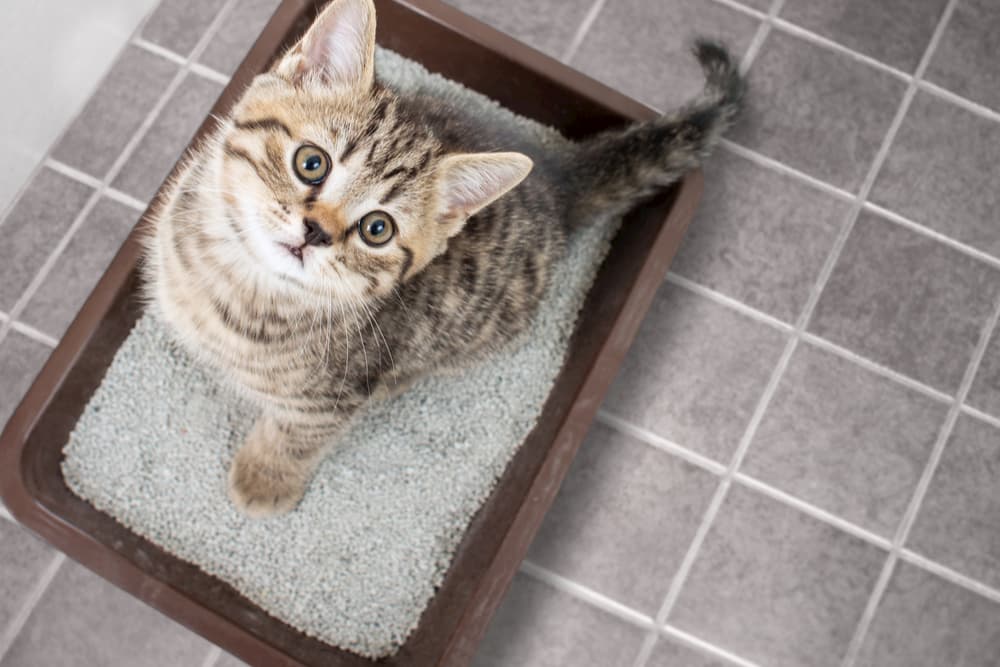Dangers of Flushing Cat Poop Down Your Toilet - Prevent Possible Problems
Dangers of Flushing Cat Poop Down Your Toilet - Prevent Possible Problems
Blog Article
Almost everyone seems to have their own individual rationale in relation to Can You Flush Cat Poo or Litter Down the Toilet?.

Intro
As pet cat proprietors, it's important to bear in mind exactly how we deal with our feline pals' waste. While it may seem convenient to purge pet cat poop down the commode, this method can have damaging repercussions for both the environment and human wellness.
Alternatives to Flushing
The good news is, there are more secure and much more responsible means to throw away cat poop. Take into consideration the complying with alternatives:
1. Scoop and Dispose in Trash
The most usual technique of dealing with pet cat poop is to scoop it right into a naturally degradable bag and toss it in the garbage. Be sure to make use of a devoted trash scoop and throw away the waste promptly.
2. Use Biodegradable Litter
Choose eco-friendly feline trash made from products such as corn or wheat. These clutters are environmentally friendly and can be safely thrown away in the garbage.
3. Bury in the Yard
If you have a lawn, think about burying cat waste in a marked location away from vegetable yards and water resources. Make sure to dig deep enough to stop contamination of groundwater.
4. Set Up a Pet Waste Disposal System
Invest in a pet dog garbage disposal system specifically made for feline waste. These systems make use of enzymes to break down the waste, minimizing smell and environmental influence.
Health Risks
Along with environmental issues, purging cat waste can likewise posture health and wellness dangers to people. Cat feces may have Toxoplasma gondii, a bloodsucker that can cause toxoplasmosis-- a possibly extreme health problem, especially for pregnant females and individuals with damaged body immune systems.
Environmental Impact
Purging cat poop presents damaging pathogens and parasites right into the water supply, posturing a substantial danger to marine communities. These impurities can negatively influence marine life and compromise water high quality.
Final thought
Liable family pet possession extends beyond offering food and sanctuary-- it also involves correct waste administration. By refraining from flushing feline poop down the commode and choosing alternate disposal methods, we can lessen our ecological impact and protect human health.
Why Can’t I Flush Cat Poop?
It Spreads a Parasite
Cats are frequently infected with a parasite called toxoplasma gondii. The parasite causes an infection called toxoplasmosis. It is usually harmless to cats. The parasite only uses cat poop as a host for its eggs. Otherwise, the cat’s immune system usually keeps the infection at low enough levels to maintain its own health. But it does not stop the develop of eggs. These eggs are tiny and surprisingly tough. They may survive for a year before they begin to grow. But that’s the problem.
Our wastewater system is not designed to deal with toxoplasmosis eggs. Instead, most eggs will flush from your toilet into sewers and wastewater management plants. After the sewage is treated for many other harmful things in it, it is typically released into local rivers, lakes, or oceans. Here, the toxoplasmosis eggs can find new hosts, including starfish, crabs, otters, and many other wildlife. For many, this is a significant risk to their health. Toxoplasmosis can also end up infecting water sources that are important for agriculture, which means our deer, pigs, and sheep can get infected too.
Is There Risk to Humans?
There can be a risk to human life from flushing cat poop down the toilet. If you do so, the parasites from your cat’s poop can end up in shellfish, game animals, or livestock. If this meat is then served raw or undercooked, the people who eat it can get sick.
In fact, according to the CDC, 40 million people in the United States are infected with toxoplasma gondii. They get it from exposure to infected seafood, or from some kind of cat poop contamination, like drinking from a stream that is contaminated or touching anything that has come into contact with cat poop. That includes just cleaning a cat litter box.
Most people who get infected with these parasites will not develop any symptoms. However, for pregnant women or for those with compromised immune systems, the parasite can cause severe health problems.
How to Handle Cat Poop
The best way to handle cat poop is actually to clean the box more often. The eggs that the parasite sheds will not become active until one to five days after the cat poops. That means that if you clean daily, you’re much less likely to come into direct contact with infectious eggs.
That said, always dispose of cat poop in the garbage and not down the toilet. Wash your hands before and after you clean the litter box, and bring the bag of poop right outside to your garbage bins.
https://trenchlesssolutionsusa.com/why-cant-i-flush-cat-poop/

As a reader on Don’t flush cat feces down the toilet, I assumed sharing that section was worthwhile. Make sure you take a moment to distribute this blog if you enjoyed reading it. Many thanks for taking the time to read it.
Explore Report this page